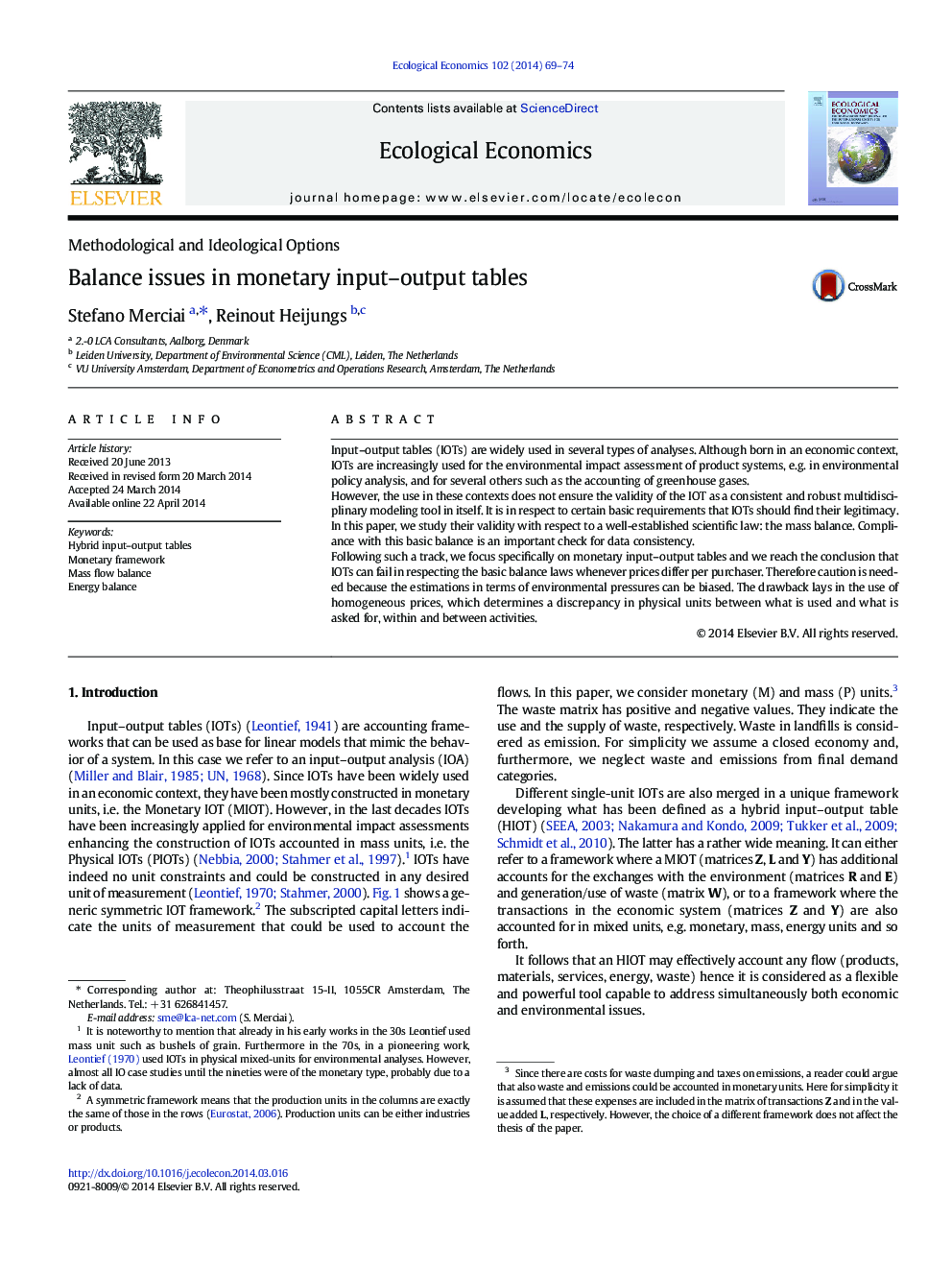| Article ID | Journal | Published Year | Pages | File Type |
|---|---|---|---|---|
| 5049675 | Ecological Economics | 2014 | 6 Pages |
â¢Mass balance and conservation laws within the input-output framework could be violated.â¢Leontief's demand-driven model upon a monetary framework is investigated.â¢Conservation laws could be commonly violated if prices differ per purchaser.â¢Physical quantities should be always preferred to monetary flows when it is possible.
Input-output tables (IOTs) are widely used in several types of analyses. Although born in an economic context, IOTs are increasingly used for the environmental impact assessment of product systems, e.g. in environmental policy analysis, and for several others such as the accounting of greenhouse gases.However, the use in these contexts does not ensure the validity of the IOT as a consistent and robust multidisciplinary modeling tool in itself. It is in respect to certain basic requirements that IOTs should find their legitimacy. In this paper, we study their validity with respect to a well-established scientific law: the mass balance. Compliance with this basic balance is an important check for data consistency.Following such a track, we focus specifically on monetary input-output tables and we reach the conclusion that IOTs can fail in respecting the basic balance laws whenever prices differ per purchaser. Therefore caution is needed because the estimations in terms of environmental pressures can be biased. The drawback lays in the use of homogeneous prices, which determines a discrepancy in physical units between what is used and what is asked for, within and between activities.
